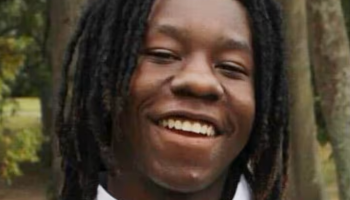Sil Lai Abrams is likely one of the most “got-it-together” sistas you would ever want to meet, if you ever had the pleasure of chatting with her.
SEE ALSO:
Octavia Spencer’s Historic Rise To Hollywood Royalty
Need A Passport Photo? There’s An App For That!
Listen To Destiny’s Child & Beyonce’s Hometown Playlist!
She’s a leading relationship expert whose name has been featured on the mastheads of several prominent websites and magazines. She is a lecturer on domestic violence and a published author of “No More Drama: Nine Simple Steps To Transforming A Breakdown Into A Breakthrough,” (Sepia Press Publishing).
Back in her younger days, she was cat walking on runways throughout Europe.
‘LIKE’ NewsOne’s FB Page To Stay Up On Black News From Around The World
She also knows a thing (or 10) about drama.
In fact, Sil Lai says she was once the quintessential “Drama Queen.” There was no situation, no matter how promising, in which she could not sabotage her emotional well-being and professional ascent. She stayed in relationships with men who were no good for her. And when Sil Lai wasn’t in a bad romantic relationship, she was sabotaging friendships with those who cared for her.
Her soft smile and casually professional demeanor, though, do not give off any hint of a someone who was battling emotional issues that contributed to her self-destructive behavior. (Watch the video below to see her explain what those issues were.)
Sil Lai Abrams Talks About Her Book “No More Drama”
At one point Sil Lai was involved in an abusive relationship that put her life and those of her children at risk. Eventually, she was able to overcome her self-destructive behavior and now devotes her time showing other women how to do the same. And when she is not touring the country speaking at women empowerment conferences, she pens a regular column for Ebony.com as their relationship expert.
An issue that is dear to her is that of domestic abuse. Having lived through and overcome an abusive relationship in the past, Sil Lai is a national speaker on the subject of domestic violence. She is also on the national advisory board of the National Domestic Abuse Hotline.
I sat down with Sil Lai one Saturday afternoon to discuss how she has learned to avoid emotionally and physically abusive relationships. Here are a few of her tips.
1) Get honest with yourself! Sometimes, denial plays a large part in a person staying in an unhealthy relationship. One of the tools that I have found worked for me in the past was to journal and keep a record of all of the instances of abuse, because it’s really easy to forget about what really happened. So getting honest with yourself is about getting truthful. Journaling and keeping a record is one of the first things you should do.
2) Create a safety plan. You can go online to websites, such as the National Domestic Violence Hotline or Safe Horizon, and they will outline the specific steps you can take to create that safety plan to get out. Some of the things you can do is put aside money to escape, make copies of important documents (green card, passport, birth certificates for your children, etc.) and anything else you would need in order to start over.
3) Speak to friends. A family member, your pastor, law enforcement or domestic violence agency and let them know what is going on because you have to get out of the bubble you’re in. And you can enlist them as support.
4) Sever all communication with your former partner. A lot of times, the woman wants to stay in touch. She feels compelled to because of the kids, because she loves him, she misses him, she still wants to try and negotiate some type of normal relationship with her batterer and that is a dangerous thing because he has one objective: to get you to come back. They’ll use a lot of emotional hooks to get you back, such as guilt and intimidation, anything to play on your heart strings to say OK: “This time is going to be different. I’m coming back.” And trust me, if you do go back, it’s going to be that much harder to get out.
5) Get help. Get into therapy. In the African-American community, there is a huge taboo about it. People think that if you have an issue, you pray it out, but domestic violence is a family systems issue. It is something that is passed down from generation to generation, so if you’re going to break your own cycle of violence, you’ve got to get help.
















